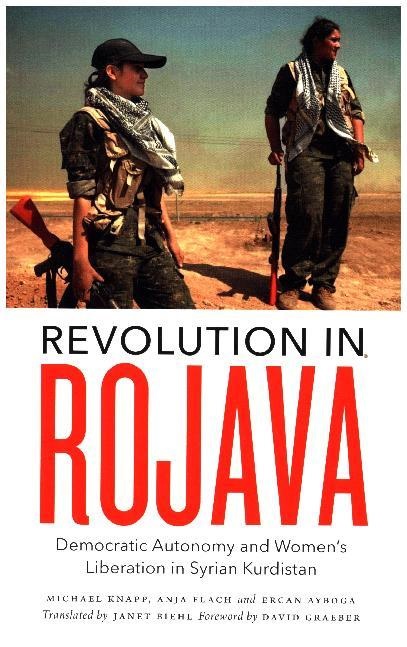Read more
A new kind of society is being built in Syria, but it's not one you would expect. Surrounded by deadly bands of ISIS and hostile Turkish forces, the people living in Syria's Rojava cantons are carving out one of the most radically progressive societies on the planet today. Western visitors have been astounded by the success of their project, a communally organised democracy which considers women's equality indispensable and rejects reactionary nationalist ideology whilst being fiercely anti-capitalist. The people of Rojava call their new system democratic confederalism. An implementation of the recent ideology of the imprisoned Kurdish leader Abdullah Ocalan, it boasts gender quotas of 40 percent, bottom-up democratic structures, deep-reaching ecological policies and a militancy which is keeping ISIS from the gates. Revolution in Rojava is the first full-length study of this ongoing social and political transformation in Syrian Kurdistan. Its authors use their own experiences of working and fighting in the region to construct a picture of hope for Middle-Eastern politics and society, and reveal an extraordinary story of a battle against the odds.
List of contents
List of Figures
Translator's Note
Foreword by David Graeber
Introduction
Prologue: On the Road to Til Koçer
1. Background
2. Rojava's Diverse Cultures
3. Democratic Confederalism
4. The Liberation
5. A Womens' Revolution
6. Democratic Autonomy in Rojava
7. Civil Society Associations
8. Defense: The Theory of the Rose
9. The New Justice System
10. The Democratization of Education
11. Health Care
12. The Social Economy
13. Ecological Challenges
14. Neighbors
15. Prospects
Afterword: The Philosophy of Democratic Autonomy by Asya Abdullah
Glossary
About the Authors
Index
About the author
Michael Knapp, Historiker und Aktivist des Kurdistan-Solidaritätskomitees Berlin, forscht zu Modellen radikaler Demokratie und sozialen Bewegungen. Er ist aktiv in der Kampagne TATORT Kurdistan und bereisten in den vergangenen Jahren immer wieder Rojava und die anderen Teile Kurdistans.
Anja Flach, Ethnologin, ist Mitglied des Frauenrates Rojbîn Hamburg. Sie ist aktiv in der Kampagne TATORT Kurdistan und bereisten in den vergangenen Jahren immer wieder Rojava und die anderen Teile Kurdistans.
Ercan Ayboga ist Umweltingenieur und Ökoaktivist in der Initiative zur Rettung von Hasankeyf und den Netzwerken "Water Right" und "Ekopotamya". Er ist aktiv in der Kampagne TATORT Kurdistan und bereisten in den vergangenen Jahren immer wieder Rojava und die anderen Teile Kurdistans.
Summary
The first full-length book of the unique and extraordinary political situation in Rojava, Syria

